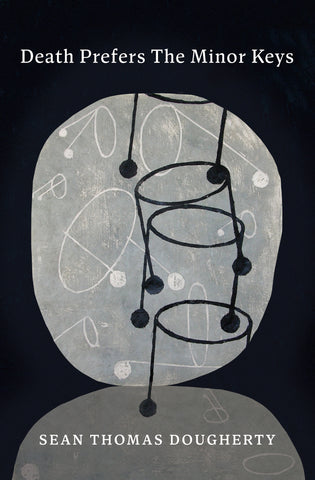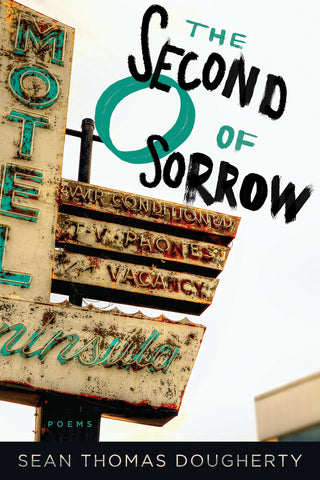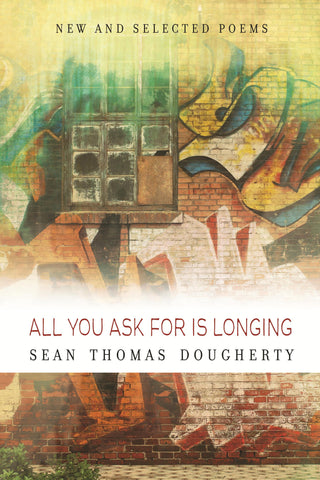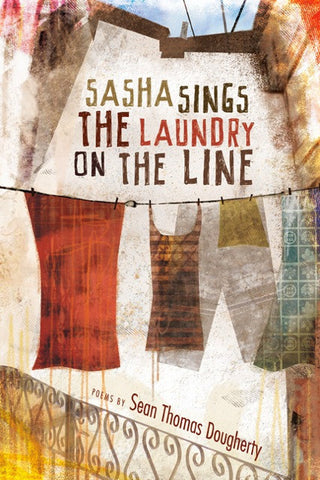
About This Title
A Publisher's Weekly Top 10 New Release in Poetry
In his twentieth book, most of which was first composed on the backs of medical forms while on break as a third-shift medical technician, Sean Thomas Dougherty brings us a memoir-like prose sequence reflecting on disability, chronic illness, addiction, survival, love, and parenthood.
In Death Prefers the Minor Keys, Dougherty offers the reader collaged prose poems, stories and essays full of dreams, metaphors, aphorisms, parables and narratives of his work as a caregiver. Moving portraits of Dougherty’s residents, a series of letters to Death, invocations of Jewish ancestry through the photography of Roman Vishniac, imaginary treatments for brain injuries, and half translated short stories of lives both real and imagined populate this collection. Through these, Dougherty engages issues of labor, the ontology of disability, and the mysticism of life.
Death Prefers the Minor Keys is most of all a kind of love letter to Dougherty’s wife, and her courage and complicity in the face of long-term illness and addiction. Ultimately, we see how the antidote to despair can reside in daily acts of caring for other human beings.
Excerpt from "Hasidim, Brooklyn Light"
Some black-bearded young men on cell phones, others old with white tinged beards down to their waists, mothers with long black dresses pushing prams and chuckling Yiddish lullabies. The teenage girls come running, their tight jeans rolled above the knee beneath their long plain dresses––in the subway station, out of the eye of their parents, they lift their hems, unsheathe themselves––the transformation into bad––each doing the other’s makeup—blue eyeliner, deep red lipstick, and hair sprayed high, prayer books stuck in big purses with flats exchanged for blue and glitter fat hip hop soles. These Hasidim girls become all bassline, swaying and pointing, half-shifted, navel-pierced, vowels deep as Brooklyn. How did that one hide the tattoo of a bird on her calf ? Whose grandmother too wears tattoos? Suit worn to threads, sitting baggy on the bench, nearly nodding into his chest, one old man moves his lips as if praying. And I am reminded how one sect says, there is never one-hundred-percent lack of joy––cantors rising on cumulus clouds, tangerine sound of ice cream truck bell lilt-lilting-feet run-running across Eastern Parkway, the children—all yarmulkes and braids, never one-hundred-percent lack-of-joy. Can there be one-hundred-percent joy? Dim the day goes, sundown, on the Sabbath, late April. Five thousand years the letters become sounds. The cherry blossoms voweling yes yes yes.
Praise for Death Prefers the Minor Keys
"In the hours between dusk and dawn the lyric voice does not take respite. We go with our weary speaker from room to room as the owls preside over the sleepers and as those who sweep after the living do their daily rounds. In Sean Thomas Dougherty’s deft prose poems, sentence by sentence the speaker keeps vigil, watching over this fragile world. Over hospital intercoms we hear emphatic music urging those within earshot to listen and know that there are songs playing throughout the night. This is an exquisite collection."
—Oliver de la Paz, author of The Boy in the Labyrinth
“Sean Thomas Dougherty is the great bard of the American working man. His voice is unmistakable and his poems break the heart and heal it in the same poem, often in the same line. Place, work, illness, death, grief, poverty, and social injustice permeate the powerful prose poems in Death Prefers the Minor Keys. In ‘my eleven-year-old daughter asks for a pill,’ he writes, ‘I’ve worked third shift for so many years. I sleep when the doves are cooing in the rafters. I sleep after the children board the bus. I sometimes can’t sleep for days, because of work and responsibilities. Some of you can’t understand this, some of you know exactly what I mean.’ One of Sean’s great gifts as a poet is the empathy he extends to the broken world and to his reader, so we always know exactly what he means. I go to Dougherty’s poems for consolation; his enormous humanity gives me hope.”
— Jennifer Franklin, author of If Some God Shakes Your House
“In the prose poem ‘Magdalene’ Dougherty writes directly to the great saint: ‘Bearer of Unbearable Griefs. Witness to the Resurrection.’ He then takes on the apostles who denied her full status and ends with ‘who of them could say they know anything of mercy?’ It's a question Death Prefers The Minor Keys presses continuously against the body of the reader. I have never read a book more relentless and fierce and vital in its asking of this question. No easy answer is forthcoming, but no reader can read Death Prefers the Minor Keys without having the full palpable weight of that question pressed into their consciousness.”
— Joe Weil, author of The Backwards Year
Publication Date: 09/26/2023
ISBN: 978-1-960145-06-2
© BOA Editions, Ltd. 2023




